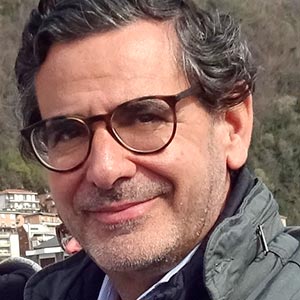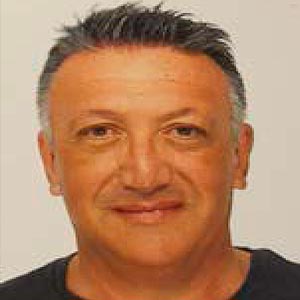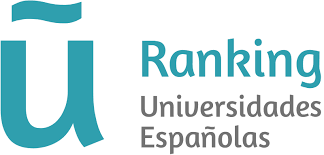(60 ECTS)
Blended
Online
Face-to-face: 40
Blended: 80
Online: 80
Learn to efficiently manage global projects
The possibilities of new technological developments, the effects of globalization and the need to optimize the use of existing resources are forcing companies to redefine their organization and rethink their strategy.
In this area, each and every one of the departments of an organization are affected to a greater or lesser extent, the challenges they face (technology, commercial tensions, etc.) require reviewing the way in which these goals are achieved. In this context, Project Management becomes an essential tool for all managers who want to evolve in their professional career and adapt to a constantly evolving business world.
The Master's Degree in Project Management and Organization is an official master's degree in the entire European educational area that lasts for one year. Our faculty is made up of active professionals in project management in all types of organizations, which allows the student to receive very practical education with different perspectives. This education is compatible with the student's professional activity thanks to the different formats in which it is offered.
In regards to the FRP - Master's Final Research Project, it starts by defining a real project on which a Project Plan is prepared applying all the knowledge received during the degree.
Practical methodology
The master's degree is taught with an eminently practical methodology, in which the case method is followed. Continuous evaluation and personalized attention are two of the fundamental characteristics of this Master's degree. The Blackboard learning platform is used in all modalities, being especially important in the online modality.
PMP, Scrum and Kanban Certifications
Having recognized certifications within the field of project management is just as important as education. For this reason, you can receive additional training with which you can prepare to achieve certification in PMP and/or Scrum + Kanban, based on your experience and/or future career.
Differentiation
The reduction of strategic cycles implies the need to incorporate the Agile methodology into projects, which is why our entire faculty is certified – they are proficient in this discipline and incorporate it into their training.
Practical training based on real case studies
PMP Certification
Online attendance training course, 35 hours that is complemented by the use of simulators for 6 months if the student is determined to access the PMP certification.
Scrum + Kanban Certification
On-line attendance training course; 16 hours that is complemented by the use of a simulator for 1 month that is extended in case the student determines certification.
Professional internships
Ferrovial, PwC, Santander, Endesa and Microsoft are some of the companies and institutions that endorse the curriculum and offer professional internships to students.
Curriculum
The student must take 60 credits
Compulsory
Internship
FRP
First semester 24 ECTS
- 2 ECTS | Fundamentals of Project Management and Conceptual Framework
- 2 ECTS | Integration of the Government Model with the Practice of Project Management
- 2 ECTS | Knowledge Outline: Knowledge areas and Process Group
- 2 ECTS | Start of the Project: Business Case. Startup Process Group
- 4 ECTS | Planning I: Scope / Time / Cost / Quality Management
- 4 ECTS | Planning II: Human Resources Management / Communications / Risks / Procurements / Stakeholders
- 4 ECTS | Project Execution
- 4 ECTS | Monitoring and Control of Projects I: Progress / Deviations / Validation / Schedule and Costs and Earned Value Technique
Second semester 24 ECTS
- 4 ECTS | Monitoring and Control of Projects II: Quality / Communications / Risks / Procurements / Stakeholders
- 4 ECTS | Project Closure: Temporary Economic and Scope. Close Procurements
- 4 ECTS | International Standards and Norms in Project Management
- 2 ECTS | Agile Project Management Methodologies
- 2 ECTS | Continuous Improvement Models: Lean, Six Sigma and EFQM concepts
- 2 ECTS | Management Skills for Project Management
- 2 ECTS | Preparation and Simulation of PMP Certification
- 4 ECTS | Project Management Tools
Professional Internship 4 ECTS
- 4 ECTS | Professional Internship
Master’s Final Research Project 8 ECTS
- 8 ECTS | Master’s Final Research Project
Online studies
Awards to Global Campus Nebrija



Professors


Elena Álvarez García
Professor / Technology and Big Data
Director of the Master Degree in Project Management and Organization
SEE PROFESSOR CV


David Cohén Wahnón
Associate professor / Business strategy
PhD in Engineering (Polytechnic University of Madrid)
SEE PROFESSOR CV
 Fd
FdFrancisco de Borja García Zamalloa
Professor
Systems Engineer from the University of Deusto. EX-MBA ie - Business Institute.
SEE PROFESSOR CV
Ana Fernández-Ardavín Martínez
Professor
Dean of the Faculty of Economics and Business
SEE PROFESSOR CV
Luis Fernández de Santos
Professor
Direction and Management of Madrid Metro Projects
SEE PROFESSOR CV
Mónica Goded Salto
Fundamentals of Economics, Areas and international markets
Professor / Director of the Bachelor Degree in Economics and International Business
SEE PROFESSOR CV
Jorge Hernando Cuñado
Lecturer / Economics
PhD in Economics (Universidad Complutense de Madrid)
SEE PROFESSOR CV



José Javier Rainer Granados
Adjunct Professor
PhD in Engineering (Universidad Politécnica de Madrid)
SEE PROFESSOR CV

Mirco Soffritti
Doctor en Economía
PhD in Communication (Universidad Complutense de Madrid)
SEE PROFESSOR CV
Fernando Tomé Bermejo
Lecturer / Economics
PhD in Economics (Universidad de Alcalá)
SEE PROFESSOR CVEmployability and Internships
Career Opportunities
The Master's Degree in Project Management and Organization trains students to:
- Design, plan and write technological proposals that meet all the required quality parameters.
- Apply project design and management methodologies in its four specific stages: planning, negotiation, exploitation and innovation.
- Analyze the existing technological fields and learn about the various sources of financing and R+D+i programs.
- Analyze the presentation, execution and justification of technological projects in greater detail.
Guaranteed Professional Internships
Action procedure in carrying out professional internships List of companies and institutions where master's students have carried out internships under an educational cooperation agreementQuality of the degree
- Degree: Master's Degree in Project Management and Organization
- Modalities: Face-to-face | Blended | Online
- Places offered:Total: 200 | Face-to-face: 40 | Blended: 80 | Online: 80
- Professors: Professors: 19 | Percentage of doctors: 58%
- Student profile: The appropriate profile is aimed at engineers, graduates or university graduates: who want to train and specialize in Project Management to improve their competitiveness and professional projection, professionals (with a university degree) who work in project management and do not have specialized training. Furthermore, at the Nebrija University it is necessary to pass the specific Admission Tests for each degree, the content and specific procedure of which will be developed in the section “Access requirements and admission criteria.” Regarding the admission of non-native Spanish speaking students, the same profile as that of Spanish speakers will be required and they must also demonstrate their communicative mastery in oral and written Spanish language at a B2 level of the Common European Framework of Reference for teaching, learning and language evaluation.
- Graduate profile: A graduate of a master's degree in Project Management and Organization can develop his or her activity as a project manager, consultant, program director or project analyst in various sectors such as technology, construction, finance, manufacturing, government institutions, international organizations, consulting firms, NGOs and foundations. Their activities include project planning, execution and closure, team supervision, resource management, advice on management methodologies, coordination of multiple projects and evaluation of project viability. These tasks can be carried out both in private companies and in public administration and internationally.
Academic regulations
General Student Regulations. Recognition and transfer of credits. Student participation regulations. Common procedures for carrying out the TFG / TFMAcquired competences
General Competences
- GC1- Prepare Project Plans, clearly differentiating the area of project management from the area of technical management of the product of said project.
- GC2- Apply the knowledge required by project management in the implementation of a project office in different organizational contexts.
- GC3- Formulate the necessary processes in project management, understanding the life cycle of said processes and their activities.
- GC4- Understand and master the bases and good planning practices of a project, in terms of: scope, time, cost, resources, supply, communications, stakeholders and risks.
- GC5- Correctly plan a project, relating and integrating the different sub-processes involved depending on the specific requirements, links and environment.
- GC6- Select the main standards, methods, frameworks and certifications that currently exist for the direction and management of projects.
- GC7- Determine the main characteristics of Agile methodologies and their different phases of planning and management.
- GC8- Compare different existing project management tools in the market.
- GC9- Establish and assess the main skills required by a project manager in their professional performance.
Specific Competences
- SC1- Identify the different models of organization and project management in order to establish the business strategy.
- SC2-Know how to determine and assess the requirements and objectives of the project in a given area.
- SC3-Be able to adapt project management techniques and tools to the different environments in which the project may take place, choosing the most appropriate techniques and the distribution of the management effort.
- SC4-Understand the concept of efficiency in project management.
- SC5- Correctly plan a project once the bases and good practices are known.
- SC6- Determine and contrast the basic concepts on verification of deliverables generated by the project.
- SC7- Establish the control parameters of a project ensuring the expected results.
- SC8- Formalize the organized closings of the projects that will serve as a basis to maximize the aspects that are done well, and minimize the mistakes made in previous projects.
- SC9- Compare the main standards in Project Management knowing how to differentiate in each case which is the optimal approach.
- SC10- Assess the PMP® certification process as a training complement in future professional performance.
- SC11- Apply Agile methodologies in the design of a technological project.
- SC12-Acquire the necessary knowledge to develop a quality plan for the project and define the processes and control systems necessary to achieve the characteristics that satisfy the project requirements.
- SC13- Select the most appropriate tools in the management and direction of projects, depending on a given situation.
- SC14- Recognize different project/team/stakeholder environments and determine the alternatives available in each situation, preparing the corresponding strategy.
- SC15-Understand the concept of success in Project Management and the criteria necessary for its achievement.
Information Systems prior to Enrollment
The admission routes and requirements for the degree are those set out in Royal Decree 1393/2007 of October 29, with subsequent modification in Royal Decree 861/2010 of July 2, which establishes the organization of official university education.
For its part, the admission profile for the Master's Degree in Project Management and Organization is defined as follows:
The appropriate profile is aimed at engineers and university graduates: who want to train and specialize in Project Management to improve their competitiveness and professional career, professionals (with a university degree) who work in project management and do not have specialized training.
In addition, at Nebrija University it is necessary to pass the specific Admission Tests for each degree, the content and specific procedure of which will be described in the section "Access requirements and admission criteria".
Regarding the admission of non-native Spanish-speaking students, the same profile as that of Spanish-speakers will be required, and they must also prove their communicative proficiency in oral and written Spanish at a B2 level of the Common European Framework of Reference for teaching, learning and language assessment.
Information is provided about both the objectives and the structure of the subjects that make up the academic program of the proposed degree via the University's website (www.nebrija.com) and all the brochures that are routinely published at the University.
On the aforementioned webpage, candidates can consult the objectives of the degree, its general characteristics, the curriculum, the CV of professors and tutors, testimonial texts from former students, professional opportunities, the list of companies that have hired the graduates in previous years, among other information of great interest such as fees, scholarships, bank loans and other aid, etc.
The candidate has access to all the information about the admission process, requirements, etc. on the University website: www.nebrija.com. This website also contains PDF copies of the informative brochures of the different programs.
The University has a Promotion and Admissions Department, which is in charge of providing personalized information to those who request it, and of monitoring and facilitating the admission phases, from the administrative and management side, for the candidate. The Promotion and Admissions Department has specialized people for each program, trained to respond to requests for information that may arrive by the e-mail, telephone numbers or fax provided for this purpose and that appear in advertising. The candidate is also given the opportunity to meet with the Coordinator of the Master's Degree in Project Management and Organization and the Director of the Department.
Access Requirements and Admission Criteria
As established in Article 16 of RD 1393/2007, modified by RD 861/2010, students who meet any of the following conditions may access these studies:
- Have an official Spanish university degree or another issued by a higher education institution of the European Higher Education Area that authorizes access to Master's degrees in the country issuing the degree.
- Graduates from educational systems outside the European Higher Education Area will be able to access without the need for homologation of their degrees, after the University verifies that they accredit a level of education equivalent to the corresponding official Spanish university degrees, and that these grant access to postgraduate education in the country issuing the degree. Access through this route will not imply, in any case, the homologation of the previous degree held by the interested party, nor its recognition for other purposes than that of studying the Master's degree.
- In the case of students with special educational needs derived from disability, the need for possible curricular adaptations, itineraries or alternative studies will be assessed.
In the case of university graduates whose previous education does not include training in Business Management and Administration, the Antonio de Nebrija University will offer and require complementary courses in this discipline, so that all students who access the master's degree have the prior knowledge appropriate to the level of the degree to which they wish to access.
In this way, if the student's profile requires it, the University, through the Master's Director, will establish the complementary training courses that the student must take. Said courses may have a maximum load of 12 ECTS credits, and will be set based on the candidate’s profile and CV.
The training courses are not part of the University Master's Degree in Project Management and Organization from the Antonio de Nebrija University.
The student must take, if required, any of the following subjects:
- 1. The company and its environment (6 ECTS credits)
- 2. Business management and organization (6 ECTS credits)
The description of these training courses is included in the section “Complementary Training Courses for Master's degree” of this Report.
In addition to the legal requirements, the university requires passing its own entrance exams, the admission tests.
The admission process to the Master's degree begins by sending the following documentation by postal mail or courier to the Postgraduate Admissions Section:
- Solicitud de Admisión cumplimentada
- Updated Curriculum Vitae
- Photocopy of the DNI (only Spanish candidates), or passport (only foreign candidates)
- Photocopy of the Academic Record (completed or in the last year of the university degree)
- Two color passport-size photographs
Once the documentation has been received and it has been verified that the degree presented grants access to the master's degree, as established in Arts. 15 and 16 of Royal Decree 1393/2007, candidates take the admission test of the chosen program, which is carried out by the Department of Promotion and Admissions. This test is taken in person in Madrid and in different Spanish cities and, additionally, it can also be taken remotely (online).
The admission test, which aims to analyze the student's abilities to complete the Master's program, evaluates the candidate's profile and abilities, so it does not require prior preparation, and it allows the student to receive more extensive and personalized advice on their academic and professional options. This test consists of two parts: the first is an aptitude test with which the maturity of the student and the reasons that lead them to study with us are analyzed. The second is a specific test for the chosen program that consists of a test of questions on business organization and management, at the basic level of education in the degrees that correspond to the admission profile.
Once the different phases of the admission tests have been completed, the candidate has a personal interview with the Master's Coordinator, who makes a report on the candidate's skills profile, their degree of maturity, their personal interest in the Master's and their suitability for the degree, which is attached to the file that will be assessed by the Admissions Committee. In the case of taking the written tests remotely, the personal interview may be carried out via videoconference.
Once the admission tests have been completed, the Admissions Committee, made up of those responsible for the Department itself, the Registrar and the Promotion and Admissions Department, analyze the results and the documentation submitted by the candidate and approve or reject the application. The candidate receives written information about their admission, which is also given via a phone call, about the result of the admission process and about the formalization of their registration in the Program, the final documentation that must be submitted and duly legalized, etc.
The weighting of these admission tests is specified below:
- Evaluation of the academic record (previous studies): 50%
- Admission Test:
- Aptitude test: 15%
- Specific test of the Master's program: 25%
- Personal interview:10%
Pre-enrollment
Once the admission has been communicated, the candidates must reserve their place. This economic pre-enrollment guarantees the candidate's place at the University.
Enrollment
Pre-enrolled candidates who wish to formalize their academic enrollment at the University must, within the indicated deadlines, follow these steps:
- Submit documentation: documentary proof that they have passed the requirements established by Spanish university legislation in order to begin/continue their university studies at Nebrija University.
- Formalize the enrollment process online: The self-enrollment service on the Nebrija website allows admitted students to carry out all the academic, economic and administrative procedures without having to physically go to the University. Admitted students will formalize their self-enrollment within the periods indicated. To do this, they will receive at their address, together with their admission letter, the access code and personal password necessary to carry out their academic and economic self-enrollment. Once the self-enrollment is formalized after verification of the documentation submitted, the candidate acquires the status of Nebrija University student. In the self-enrollment process, the student has technical assistance from the Computer Services department at all times, as well as academic assistance through the person who will be their Tutor, so that the latter can guide them in the choice of subjects.
- Payment of the annual registration fees for the degree for which they were admitted. The place reservation fee is a part of the annual registration fee.
The admission criteria for students enrolled in degrees taught in a blended modality will be the same as in the face-to-face modality, but will include the following additional criteria:
Real possibility of correctly monitoring the educational activities provided for in the requested degree (which may have a certain face-to-face component). This will be assessed during the personal interview, in which the interviewer, in addition to all the access and admission criteria already mentioned for the face-to-face modality, will assess whether the job and personal situation of the candidate, their availability, etc. is compatible with the normal development of the teaching-learning process and activities with the expected teaching load. As a result of this joint analysis, which will entail a mutual exchange of information, the student can be guided about their real possibilities, the recommended annual academic load, the compulsory attendance in some activities or, even, where appropriate, reject their candidacy, if there is a probability of not being able to satisfactorily carry out the programmed training activities.
The Antonio de Nebrija University does not allow the simultaneity of teaching modalities, but it does allow students to change modality from face-to-face to distance learning, or vice versa. The General Regulation of the student body includes the specific regulations for changing modality in Article 7.
Credit Transfer and Recognition Systems
For the purposes provided in the current and applicable legislation, with the aim of making student mobility effective, recognition is understood as the acceptance by the Antonio de Nebrija University of the credits that, having been obtained in official studies, in this or another University, are computed in different ones for the purpose of obtaining an official degree.
The credits obtained by the student will be recognized in the new studies:
- a) The credits taken in university education that lead to obtaining other degrees, referred to in Article 34.1 of Organic Law 6/2001, of December 21, on Universities, modified by Organic Law 4/2007 of April 12.
- b) Accredited work and professional experience, provided that said experience is related to the skills inherent to the degree. In this sense, the profiles defined for the degree will be taken as a general academic criterion so that professional experience based on reports and/or certificates issued by the companies or entities in which the activity was carried out, professional associations, etc. This is justified by the very wording of RD 861/2010, which requires the accreditation of this experience, and it seems logical that this accreditation be carried out by third parties.
- c) The rest of the credits may be recognized by the University considering the skills and knowledge associated with the subjects studied by the student and those provided for in the curriculum or that are transversal in nature.
The maximum number of credits in cases a) and b) may not exceed, as a whole, 15% of the total credits that make up the Curriculum.
Likewise, the transfer of credits implies the inclusion in the official academic documents accrediting the studies taken by each student, of the credits obtained in official studies completed previously, at this or another University, which have not led to obtaining an official degree.
The recognition of credits must be requested by the student at the time of formalizing their enrollment. Exceptionally and with explicit authorization, a period other than the one mentioned may be established. The student must also pay the fees established for this purpose.
Criteria for the recognition of credits and their justification in cases a) and b):
- 1.1.- CRITERION No. 1.- The usual criteria for recognition of credits will be applied, that is, recognition will be carried out when there is a substantial identity between the competences of the subject studied in the degree of origin and the competences of the subject that is recognized. This criterion is justified by the usual practice in the recognition of university credits.
- 1.2.- CRITERION No. 2.- The number of credits that are subject to recognition based on unofficial university education may not exceed 15% of the total credits that make up this curriculum - considering that this percentage encompasses the recognition of the cases c) and d) as a whole. This criterion is justified because it is established in the aforementioned RD 861/2010.
- 2.1.- CRITERION No. 3.- The recognition of credits will be carried out for accredited work and professional experience, if said experience is related to the competences inherent to the degree in the subject that is to be recognized. The accreditation may be based on reports and/or certificates issued by the companies or entities in which the activity was carried out, professional associations, etc. This is justified by the very wording of RD 861/2010, which requires the accreditation of this experience and it seems logical that this accreditation be carried out by third parties.
• The presentation of this type of report and/or certificates that accredit work and professional experience will be a necessary condition, but not a sufficient one, for the recognition of these credits, since in the end it will be the Antonio de Nebrija University that decides whether or not to proceed with the recognition of credits in view of the accreditation presented, in application of current legislation, in the exercise of its university autonomy and in accordance with its internal procedure for recognition of credits. - 2.2.- CRITERION No. 4.- The recognition of credits for accredited work and professional experience, together with those taken in other higher education, will have a maximum limit of 15% of the total credits that constitute this curriculum. This is justified because it is established in the aforementioned RD 861/2010.
- 2.3.- CRITERION No. 5.- The credits for professional experience may be recognized considering the adequacy between the skills and knowledge acquired, associated with that previous professional experience and those corresponding to the subjects subject to recognition. In no case will a general recognition of credits be made based on years of experience, or any other similar general criteria
- 2.4.- CRITERION No. 6.- In the recognition of professional experience, the University will not admit any type of professional experience distantly related to the competences of the subject whose recognition is requested, but rather it will recognize them only in the case of a good adequacy between those competences and professional practice. Recognition will also be avoided if the student's experience was brief. Therefore, at the time of recognition, the credit recognition committee will assess a balance between the characteristics of that experience, the area in which it has been developed, and its duration.
Nebrija University will take special care in the process of recognition of credits for professional experience, which will be applied with restrictive criteria and a clear correlation between experience and recognized competences, for a correct and orderly development of the new legal scenario, and within the framework of the instructions issued by ANECA, both in the verification processes and with a view to the accreditation processes of the degrees.
Part of the curriculum affected by recognition:
These may be recognized for accredited professional experience:
- Management Skills of International Project Management (2 ECTS credits)
- Professional Internship (4 ECTS credits).
Definition of the type of professional experience that may be recognized:The adequacy of the work and professional activity carried out in regards to the professional training of the degree will be taken into account. Preferably the following professional profiles will be taken into account:
- Program Directors
- Project Directors
- Project Managers/Heads of projects
- Senior Executives
- Functional Directors
- Consultants and Experts in areas related to the development of Projects
- Purchasing Managers
- HR Director
- Quality Manager
The student will present certificates issued by the company detailing tasks performed, responsibilities assumed and job competences. It will be necessary to be able to accredit the employment contract (with a copy of the employment record) and the functions performed (through certification from the company/institution) or documents of similar characteristics.
It will be necessary to duly prove that the work or professional experience is related to the competences of the degree, so that the recognition of credits for a subject would only occur in the event that the information provided by the applicant allows the University to ensure that, through their professional experience, they have acquired the competences of the subject to be recognized.
Complementary training courses for Master's degree
In the case of university graduates whose previous studies did not include training in Business Management and Administration, the Antonio de Nebrija University will offer and require complementary training courses in this discipline, so that all students who access the master's degree have the prior knowledge appropriate for the level of the degree to which they wish to access.
In this way, if the student's profile requires it, the University, through the Master's Director, will establish the additional courses that the student must take. Said courses may have a maximum load of 12 ECTS credits, and will be set based on the profile and history of the candidate.
The complementary training courses are not part of the University Master's Degree in Project Management and Organization from the Antonio de Nebrija University.
El estudiante deberá cursar, si así se requiere, alguna de las siguientes asignaturas:
- 1. The company and its environment (6 ECTS credits)
- 2. Business management and organization (6 ECTS credits)
Fees and Financing
We are committed to helping you to explore financing options and opportunities so that you can make the best investment in your career and your future.
Check the following link if you want more information about the scholarships you can apply for as a postgraduate student, or contact us through these mails:





